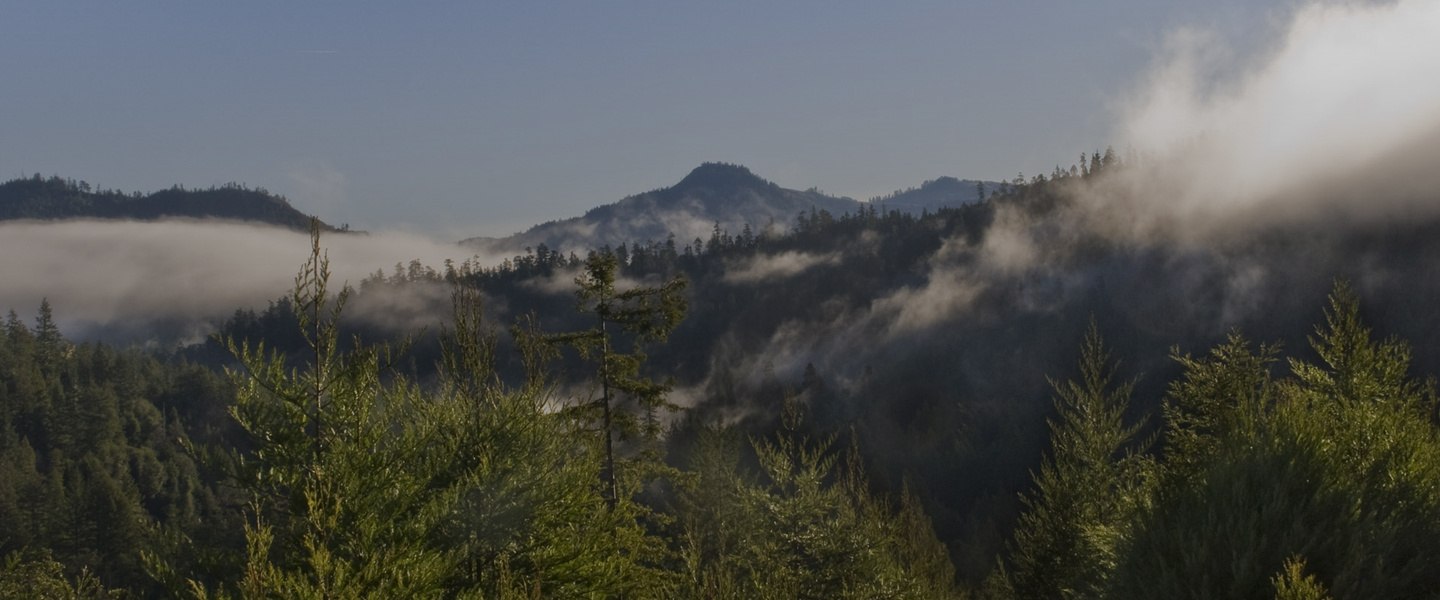
Redwood Logging Firm Recognized for Sustainable Practices
Glen Martin
The San Francisco Chronicle
November 17, 2000
After two years of attacks from environmentalists, a California timber company owned by a prominent San Francisco family has received a much-coveted "sustainability" certification for its forestry management practices.
The approval means that all forest products coming off Mendocino Redwood Co. 's 232,000 acres of Mendocino woodlands can bear a special logo, a significant marketing tool given the growing demand for wood from environmentally sustainable operations.
It is the largest redwood forest ever to receive certification from the Forest Stewardship Council, an independent forestry practices evaluation organization founded in 1993.
Bob Fisher, an owner of the timber company, said the certification proves "you can run a sustainably managed forest and a viable business. This is a huge environmental achievement, and one that we think can be duplicated."
Mendocino Redwood was formed in 1998 when the Fisher family of San Francisco, which also owns the Gap, Inc., bought logged-over land from Louisiana Pacific in Mendocino County.
Timber operations certified by the forestry council must meet a high standard of environmental stewardship, with emphasis placed on enhancing wildlife habitat, protecting riparian zones and minimizing erosion.
A mere cottage industry in the early 1990s, "sustainable" wood has since exploded in popularity, receiving a major boost last year when giant retailers Home Depot and Lowe's Home Improvement Warehouse announced they would give market priority to such products.
David Arens, director of marketing for the Forest Stewardship Council, said the certification is particularly important because of the size of Mendocino Redwood's holdings.
"Whenever a big block of land like this becomes certified, it meets one of our main goals," said Arens, "and that is the long-term conserving of entire landscapes, of maintaining the essential ecological integrity of an entire region."
Arens said the bottom-line requirement for certification is "that there is a systematic plan in place that keeps the environmental, social and economic needs in balance, that there is not willy-nilly cutting going on."
The council's certification lasts five years, and is subject to an annual evaluation of company lands to ensure sustainable practices are followed. Some of Mendocino Redwood's policies include:
-- A 30 percent harvest reduction from Louisiana Pacific's cutting levels.
-- Abandoning large-scale clear-cutting for other harvest methods.
-- Stream restoration projects.
-- Permanent protection of 130 acres of old-growth trees and a ban on the harvest of any redwood 48 inches or larger in diameter and any Douglas fir 36 inches or larger in diameter established prior to 1800.
-- Reducing herbicide use by 60 percent during the next four years, and maintaining an existing ban on all aerial spraying.
-- Establishing habitat protection policies to enhance wildlife populations and fisheries.
Mendocino Redwood's history has been marked by conflict. Shortly after incorporating, the company announced it intended to log in a responsible fashion, and began inquiries into the certification process.
But local activists protested, claiming the company was logging too aggressively while simultaneously spouting platitudes about its concerns over forest health.
A year ago, North Coast activist Mary Pjerrou said the company's logging was unsustainable. Pjerrou and other disenchanted environmentalists organized protests about the logging at Gap stores in 30 cities, including San Francisco and New York.